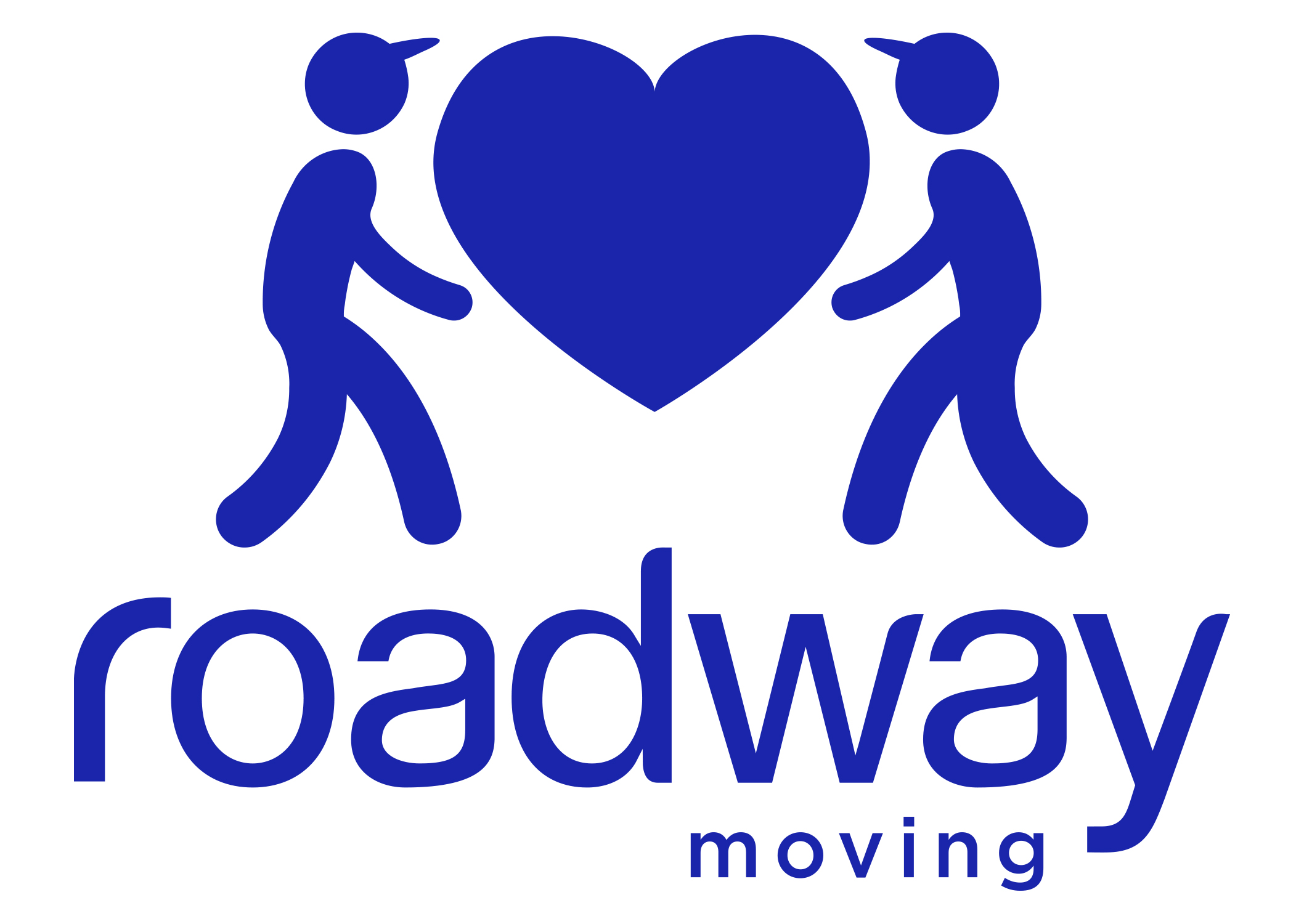Top-rated local movers that handle Fargo to Norfolk moves
When planning a move from Fargo to Norfolk, finding a local mover that also handles long-distance relocations can be tricky. We’ve taken care of the research for you — reviewing seven local movers in Fargo who provide long-distance services, and scoring them on price, customer reviews, and reliability.
Here are the top local moving companies to ensure a smooth transition from Fargo to Norfolk.
- TWO MEN AND A TRUCK: 4.44 out of 5 stars
- Midwest Moving Company: 4.48 out of 5 stars
- 5 Star Moving: 4.28 out of 5 stars
- The Apartment Movers: 4.26 out of 5 stars
- Schiele Enterprise: 4.02 out of 5 stars
Company Info
Years in Business: 24
DOT #: 2527384
Services Offered
- Local moves
- Interstate moves
- Packing
- Unpacking
- Pianos
- Storage
- Safes
- Pay by credit card
Company Info
State license #: 148
Years in Business: 6
DOT #: 3263587
Services Offered
- Local moves
- Interstate moves
- Packing
- Unpacking
- Offices
- Pianos
- Hot Tubs
- Pool Tables
- Art
- Antiques
- Grandfather clocks
- Crating
- Full-valuation coverage
- Fragile-only packing
- Safes
- Pay by cash
- Pay by credit card
- Deposit Required
Company Info
Years in Business: 22
DOT #: 1087336
Services Offered
- Local moves
- Interstate moves
- Packing
- Unpacking
- Pay by cash
- Pay by credit card
Company Info
Years in Business: 35
DOT #: 513176
Services Offered
- Local moves
- Pianos
- Full-valuation coverage
- Storage
- Pay by cash
- Pay by credit card
Company Info
Years in Business: 25
DOT #: 125550
Services Offered
- Local moves
- Offices
- Pianos
- Hot Tubs
- Pool Tables
- Art
- Antiques
- Full-valuation coverage
- Safes
- Pay by cash
- Pay by credit card
How much does it cost to move from Fargo to Norfolk?
Movers in North Dakota charge per hour on average. Here are average prices for a full-service moving company, moving container, or truck:
| Move size | Moving company | Moving container | Rental truck |
|---|---|---|---|
| Studio / 1 bedroom | $1,316 – $5,359 | $938 – $2,308 | $887 – $1,667 |
| 2 – 3 bedrooms | $3,242 – $7,421 | $1,743 – $3,610 | $960 – $2,104 |
| 4+ bedrooms | $5,948 – $10,604 | $2,444 – $4,498 | $1,233 – $2,449 |
Cost to hire movers from Fargo to Norfolk
If you’re moving a studio or one-bedroom home from Fargo to Norfolk, you can expect to spend between $1,316 and $5,359. For a two- or three-bedroom place, prices usually range from $3,242 to $7,421 on the same route. Got a larger household? Moving a four- or five-bedroom home from Fargo to Norfolk typically runs between $5,948 and $10,604.
Cost of moving containers from Fargo to Norfolk
When moving from Fargo to Norfolk, for a small load, you’ll likely pay between $938 and $2,308. If you have a two- or three-bedroom home, costs usually range from $1,743 to $3,610. Got a big family or a four-plus bedroom house? Expect prices ranging anywhere from $2,444 up to $4,498. For detailed pricing info, take a look at our complete PODS cost guide.
Check out the most affordable moving container companies to help with your move from North Dakota.
Cost of moving truck rentals from Fargo to Norfolk
Renting a moving truck in Fargo is usually your cheapest option to get to Norfolk. Just keep in mind that you’ll handle all the lifting, packing, and driving yourself.
If you’re moving out of a studio or one-bedroom and renting a truck, plan to spend between $887 and $1,667. For two- or three-bedroom moves, prices typically land between $960 and $2,104. Dealing with a four-bedroom-plus home? Expect rental truck costs to be somewhere between $1,233 and $2,449.
These cost ranges already include estimated fuel costs.
Factors that impact moving costs from Fargo to Norfolk
The cost of Fargo movers will depend on:
- The size of your move: Costs rise with more belongings. A small one-bedroom move can start at $2,800, but larger homes can run up to $10,134.
- Seasonal timing: Demand peaks in summer — expect premium rates during moving season in Fargo.
- Whether you hire pros or do it yourself: Choosing DIY with a truck ($887–$2,282) is cheaper, though tougher, than using movers.
What to know before moving from Fargo to Norfolk
Expect a bump in monthly expenses after the move – Norfolk runs about 77% higher for singles and 68% higher for families than Fargo.
Singles spend around $2,769 in Fargo versus $1,566 in Fargo; families pay $5,552 compared with $3,299.
Dig into the side-by-side details here:
| Fargo | Norfolk | |
|---|---|---|
| Average 1 BR rent | $963 | $1,875 |
| Average 3 BR rent | $2,563 | $2,492 |
| Average home value | $287,548 | $283,890 |
| Average income (per capita) | $59,493 | $63,484 |
| Cost of living (single) | $1,566 | $2,769 |
| Cost of living (family of four) | $3,299 | $5,552 |
| Unemployment rate | 3.6% | 7.3% |
| Sales tax | 7.5% | 6.0% |
| State income tax | 2.9% | 5.75% |
- As you consider relocating to Norfolk, note that rent can be roughly 42% more expensive than it is in Fargo; adjust your financial plans to accommodate this change.
- Home prices are within about 5% of each other in Norfolk and Fargo, so there’s no need to change up your mortgage budget, unless you’re upgrading your living situation.
- Great news! You’ll find the average income is about 7% higher in Norfolk compared to Fargo, giving you some extra room for savings or investments.
- Plan for higher expenses in Norfolk, since the cost of living for a single person is 77% more than in Fargo. This encompasses usual costs like utilities, groceries, apparel, and transit.
- If your journey leads to Norfolk, be prepared for higher living expenditures. The cost of living for a family in Norfolk is 68% more than it is in Fargo.
- The unemployment rate in Norfolk is 103% higher compared to Fargo, translating to more job seekers for available positions, which might elevate competition.
- Sales taxes are 20% lower in Norfolk than in Fargo. If you have a larger family or higher consumption habits, the lower sales tax in Norfolk can reduce your overall living expenses.
- Income taxes are 98% higher in Virginia compared to North Dakota. As a result, you might notice a larger bite taken out of your salary by the state’s tax system, which could affect your net income.
The breakdown below shows how typical living costs and monthly expenses line up when comparing Fargo with Norfolk:
| Living Expense | Fargo | Norfolk |
|---|---|---|
| Basic utilities | $159.44 | $190.88 |
| Cell phone plan | $54.00 | $49.33 |
| Dozen eggs | $4.00 | $4.71 |
| Loaf of bread | $3.25 | $4.12 |
| Fast-food/casual eatery (one meal) | $15.00 | $18.25 |
| Dinner for 2 (mid-range restaurant) | $50.00 | $75.00 |
| Gym membership | $55.00 | $40.00 |
- Basic utilities cost less in Fargo than in Norfolk, helping trim your monthly bills.
- Cell phone plans typically cost more in Fargo than in Norfolk.
- Eggs are less expensive in Fargo than in Norfolk.
- Bread costs less in Fargo than in Norfolk.
- A quick meal is cheaper in Fargo than in Norfolk.
- A mid-range dinner for two costs less in Fargo than in Norfolk.
- Gym memberships cost more in Fargo than in Norfolk.
How life is different in Fargo vs. Norfolk
| Fargo | Norfolk | |
|---|---|---|
| Population | 125,990 | 238,005 |
| Transportation score | 4 | 6 |
| Walkability score | 45 | 46 |
| Bike friendliness score | 49 | 47 |
| Crime index | 8.0 | 58.1 |
| Safety index | 56.17 | 41.9 |
| Air quality | Good | Good |
- Norfolk’s population is about 89% greater than Fargo.
- Norfolk’s public transportation score of 6 out of 10 is higher than Fargo’s score of 4.
- Norfolk and Fargo are similarly walkable.
- Both Norfolk and Fargo have similar bike-friendliness scores (49 vs 47), meaning Norfolk is about as safe for cyclists as Fargo. Typically, cities with scores of 20 or higher are seen as reasonably safe, though higher scores mean better cycling accessibility.
- Norfolk’s crime rate is higher than Fargo with a score of 58.1 compared to Fargo’s 8.0. This means that Norfolk neighborhoods are safer than 58.1% of all U.S. neighborhoods, and Fargo neighborhoods are safer than 8.0%.
- Norfolk is considered to be less safe than Fargo with a score of 41.9 vs Fargo’s 56.17.
- Air quality in Norfolk is Good, and in Fargo it’s Good.
Other things to consider for your Fargo to Norfolk move
- HOA rules: It’s a good idea to look into your HOA or community regulations before moving day arrives.
- Elevator reservation: Reserve elevator access early if your building requires it, to avoid delays on moving day.
- Truck parking permits: Some cities require parking permits for large vehicles and moving trucks. Find out if you need any parking permits ahead of time.
- State licensing: In addition to filing tariffs and complying with insurance, bond, and highway safety requirements, all intrastate moving companies in Virginia must have a certificate from the Virginia Department of Motor Vehicles (VaDMV). Double-check that the moving company is properly licensed before you hire them.
- State regulator: You can verify a Virginia moving company’s license by visiting the state’s public utilities commission.
- Moving Permits: While Virginia doesn’t mandate moving permits, checking local parking guidelines before your move-in day is still a good idea.
- Change of address: File your USPS change of address about a week before moving so mail reaches Norfolk smoothly. Start the process here.
- Moving company insurance: Every state requires moving companies to carry different levels of insurance. In Virginia, movers commonly offer Released Value Protection at no additional cost, providing coverage at 60 cents per pound. For increased protection, consider discussing Full Value Protection options with the moving company. Alternatively, explore third-party insurance providers for personalized plans. It’s essential to understand coverage limits, potential additional costs, and read reviews to make an informed decision about your moving insurance in Virginia.
- Moving checklist: Use our moving checklist to stay on top of every detail and reduce last-minute stress.
Where to live in Norfolk
Now that you’ve chosen Norfolk as your next home, here are a few of the best neighborhoods in Norfolk to check out.
Best neighborhoods for singles
- East Ghent
- North Ghent
- Ghent
- Downtown
- West Ghent
- Newtown
- Edgewater-Larchmont
- West 21st Street
- Colonial Place
Best neighborhoods for families
- North Ghent
- Ghent
- Virginia Beach
- Edgewater-Larchmont
- West Ghent
- East Ghent
Things to do in Norfolk
After getting comfortable in your new Virginia home, it’s time to see what Norfolk is all about. Whether you’re into food, art, nature, or nightlife — there’s plenty to check out:
- Arts and culture: From historic museums to vibrant art centers, Norfolk offers cultural landmarks like the Hampton Roads Naval Museum, Chrysler Museum of Art, Nauticus, and MacArthur Memorial.
- Outdoor recreation: The city’s Norfolk Botanical Garden, Pagoda & Oriental Garden, Town Point Park, and Lake Drummond — among other sites — are great places to hike, ride bikes, or just enjoy nature.
- Sports: Grab a seat and root for the home team during an Norfolk Tides (Baseball-International League (AAA))Norfolk Admirals (Ice hockey)Old Dominion University (Football)Old Dominion University (Basketball)Norfolk State University (Football)Norfolk State University (Basketball) game.
FAQ
When is the best time to move from Fargo to Norfolk?
The most budget-friendly and comfortable times to move from Fargo to Norfolk are in the spring or fall, when the weather is mild and moving rates in Fargo are lower.
When is the cheapest time to move from Fargo to Norfolk?
Because spring and fall moves from Fargo to Norfolk are so common, winter can be a great time to move if you’re looking for lower prices. Read our moving discounts guide to see how.
How long does a move from Fargo to Norfolk take?
A move of 1,545 miles from Fargo, ND to Norfolk, generally takes four to 15 days. Movers in Fargo sometimes provide expedited service, while storage in Norfolk is a good fallback if you need extra time.
Which movers in Fargo offer piano or antique moving?
Some moving jobs call for extra care and expertise. 5 movers in Fargo have the skills and equipment for piano transport. 2 specialize in safely moving antiques. Across ND, there are 9 piano movers and 4 antique movers, while nationwide the numbers reach 2,299 and 1,464.
Because not every mover offers these services, ask about specialty experience and insurance coverage when you request quotes.
Helpful moving resources
Fargo moving services
Popular North Dakota routes
- North Dakota to Virginia car shippers
- North Dakota to California movers
- North Dakota to Florida movers
- North Dakota to Georgia movers
- North Dakota to Illinois movers
- North Dakota to Michigan movers
- North Dakota to New York movers
- North Dakota to North Carolina movers
- North Dakota to Ohio movers
- North Dakota to Pennsylvania movers
- North Dakota to Texas movers
- See All Moving Routes
Not what you were looking for?
Check out other categories that can help you find the information you need!


























